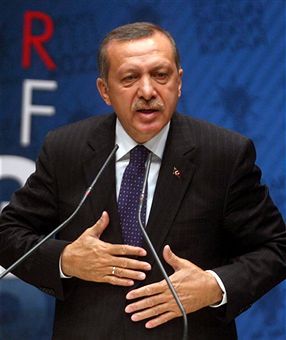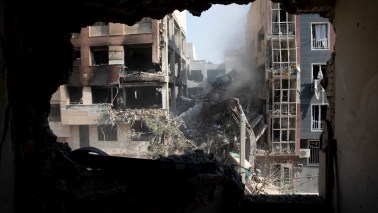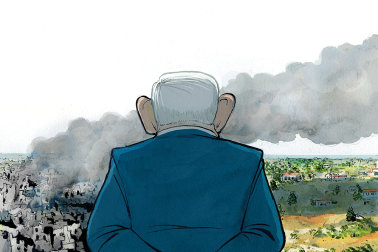 What does Turkey actually think? That’s an issue that has been occupying many Europeans,
as the vital NATO ally heads to the polls. On the one hand Turkey has in the last 10 years become more like the West: globalised, economically liberal and democratic. Turkey’s economy is now
the world’s 16thlargest, the sixth largest in Europe. But, at the same time, questions arise about its recent policies: will it consolidate its democratic achievements, or is it threatened by
a populist tyranny or even authoritarian rule?
What does Turkey actually think? That’s an issue that has been occupying many Europeans,
as the vital NATO ally heads to the polls. On the one hand Turkey has in the last 10 years become more like the West: globalised, economically liberal and democratic. Turkey’s economy is now
the world’s 16thlargest, the sixth largest in Europe. But, at the same time, questions arise about its recent policies: will it consolidate its democratic achievements, or is it threatened by
a populist tyranny or even authoritarian rule?
Certainly, many fear that Prime Minister Recyp Erdogan’s behaviour is moving Turkey away from the West, both in terms of internal policy and external alignmen. As my colleague Dimitar Bechev writes in a new publication about Turkey:
“Turkey is no longer the country the West once knew. The Libya crisis has again shown that its support for NATO is qualified. Ankara prefers engaging rather than containing Mahmoud Ahmadinejad’s Iran, and is comfortable talking to Hamas, Hezbollah and Sudanese President Omar al-Bashir.”
This compounds the mystery. Personally, I think Turkey has over-played its hand with the West and been caught out by the groundswell of change brought to the Middle East by the Arab Spring.
To unravel the puzzle that is modern Turkey, the European Council for Foreign Relations has just published a collection of nine essays by Turkish experts and political figures from different backgrounds: Islamists, secularists, Kurds and liberals. It makes interesting reading for anyone wondering where Turkey might go next and what that means for the West.






Comments